Featured Alumni
Lauren Bose (2013) and Milton Bose (2015)
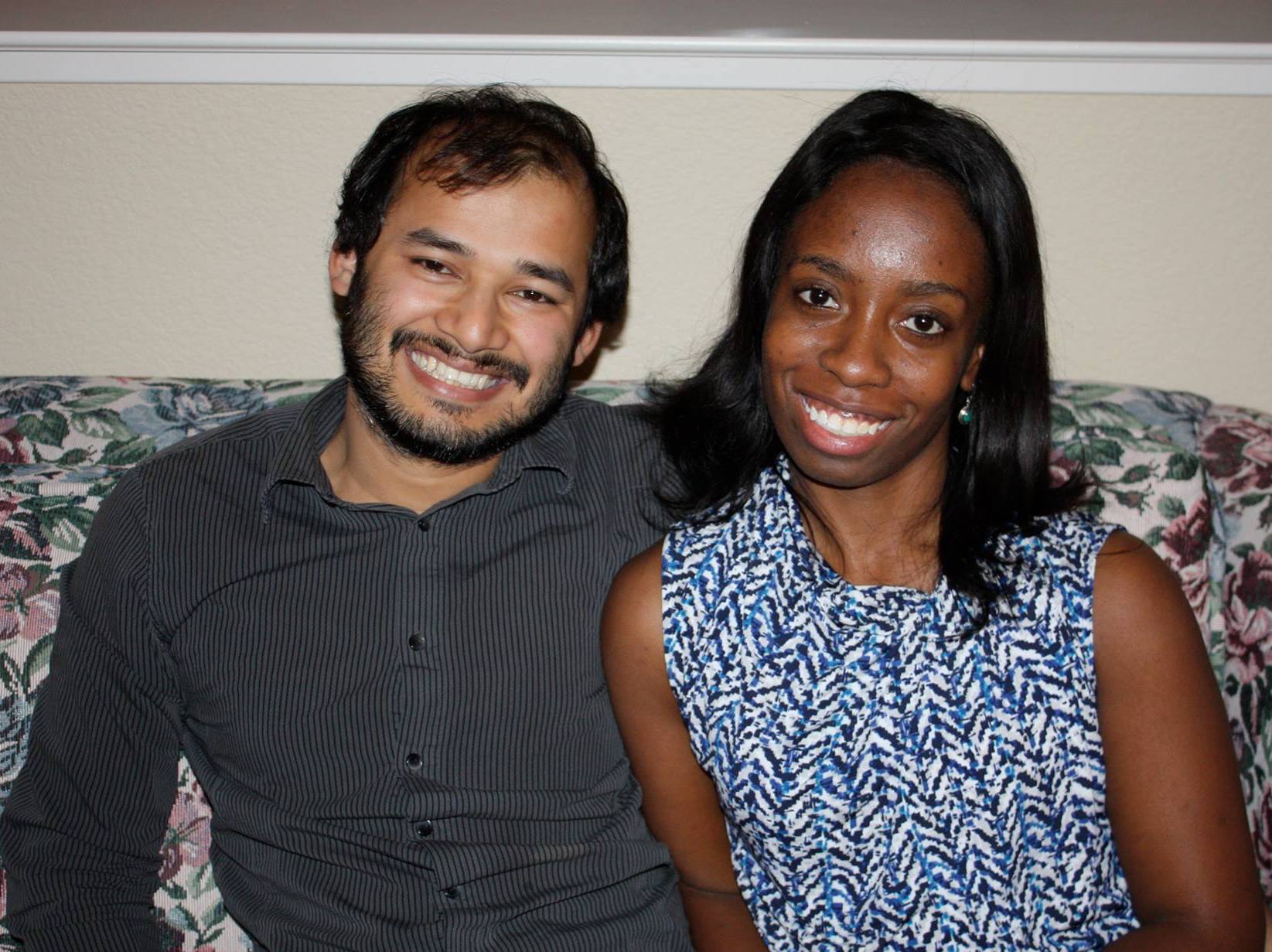
As a graduate student at UCSC, Lauren Bose worked in computational astrophysics with Professor Primack on Modeling the Growth of Massive Galaxies. She received her PhD in Spring 2013 and is now a Data Scientist at Facebook and Director, Data Science at Snapdeal.
As a graduate student at UCSC, Milton Bose worked in theoretical particle physics with Professor Dine on 'Retrofitted Supersymmetric Models'. He received his PhD in Spring 2015 and is currently a Data Scientist at Facebook.
"I decided to enroll at UC Santa Cruz for two main reasons: the academic rigor and the welcoming environment. Grad school can be stressful, so it was important to me that I be in a place where I felt supported and respected. Looking back, I know I made the right decision. I had the opportunity to work with world-class researchers, and while my fellow students and I were all driven to succeed the atmosphere was always collaborative, not competitive. That distinction truly sets UC Santa Cruz apart." - Lauren"After graduating from UC Riverside in 2009, I started studying physics at UC Santa Cruz. The Large Hadron Collider was about to start collecting data and there was much excitement around the physics beyond the Standard Model and any Dark Matter particle. Between the Astronomy and the Physics departments, UCSC had the leading researchers in these areas. During my first couple of years, I was exposed to various research topics in particle astrophysics from the faculty members and other students. I ended up doing my PhD research in theoretical particle physics under the supervision of Prof. Michael Dine. All of my colleagues and the faculty members were very supportive and cared about my success. In fact, during my last year, when I decided to pursue career in Silicon Valley as a Data Scientist, my advisor helped me devise a course plan from the statistics department so that I had a smooth transition from academia to industry. All in all, the UCSC graduate program has set me up for long-term success." - Milton
Laurel Stevenson-Haskins (2017)
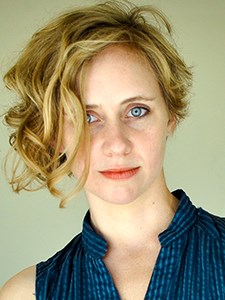 As a graduate student at UCSC, Laurel Stevenson-Haskins worked in theoretical particle physics, with Professors Dine, Haber and Profumo. She received her PhD in 2017 and is currently a postdoctoral fellow at the Hebrew University of Jerusalem, working on problems of dark matter and quantum field theory.
As a graduate student at UCSC, Laurel Stevenson-Haskins worked in theoretical particle physics, with Professors Dine, Haber and Profumo. She received her PhD in 2017 and is currently a postdoctoral fellow at the Hebrew University of Jerusalem, working on problems of dark matter and quantum field theory."As a student in the UCSC physics graduate program, I enjoyed opportunities to immerse myself in a variety of topics in high energy theory and phenomenology. My primary adviser guided me towards interesting and relevant research questions, and also encouraged me to collaborate with other faculty members. The exposure to diverse perspectives and the freedom to steer my own research program prepared me for my postdoctoral work."
Omar Moreno (2016)
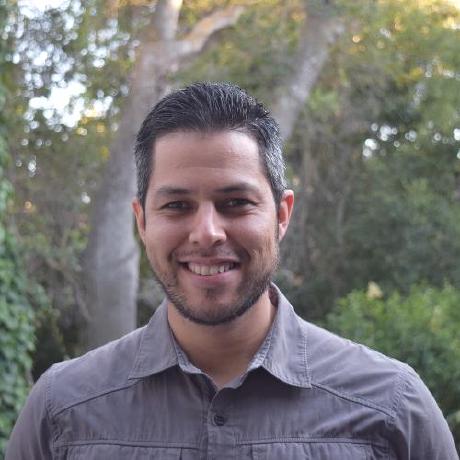 Omar Moreno is a physicist at the SLAC National Accelerator Laboratory working to unravel the mysteries of the Universe. He received his PhD from the University of California, Santa Cruz in 2016 for his work on the Heavy Photon Search experiment his thesis is entitled 'Search for a Heavy Photon in the 2015 Engineering Run Data of the Heavy Photon Search Experiment' . Currently, he is part of the Light Dark Matter eXperiment which hopes to shine light on Dark Matter.
Omar Moreno is a physicist at the SLAC National Accelerator Laboratory working to unravel the mysteries of the Universe. He received his PhD from the University of California, Santa Cruz in 2016 for his work on the Heavy Photon Search experiment his thesis is entitled 'Search for a Heavy Photon in the 2015 Engineering Run Data of the Heavy Photon Search Experiment' . Currently, he is part of the Light Dark Matter eXperiment which hopes to shine light on Dark Matter.
"As a student in the physics graduate program at the University of California, Santa Cruz, I was part of an integral community which allowed me to grow and develop into a strong researcher in particle physics. I received invaluable mentorship and developed strong collaborations which further aided in achieving a deep understanding of the multi-disciplinary aspects of particle physics. All of these fundamental aspects of the program were key to my success at UCSC."
Emma Storm (2015)
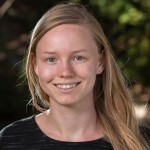
As a graduate student at UCSC, Emma Storm worked in experimental astrophysics, with Professors Jeltema and Profumo on 'Nonthermal Emission from Galactic Clusters' . She received her PhD in 2015 and is currently a postdoctoral researcher at the GRAPPA institute in Amsterdam, working on gamma-ray astrophysics and multiwavelength observations to search for dark matter.
"I grew up in New Jersey and attended New York University for my bachelor's degree in physics. In 2010, I then moved to the west coast for a PhD program in physics at UCSC. I was awarded the Cota Robles Fellowship by the department, which provides funding for the first two and last years of a PhD program. This funding allowed me to get started on research early in my program with my PhD advisor, Tesla Jeltema, on nonthermal phenomena from galaxy clusters. A particularly useful course for me in the UCSC program was Physics 205, where we learned about the current research activity in the department through talks by different faculty members. The final project for this course was to write two short research proposals. This was a very practical exercise, as writing grant proposals is an important skill for all researchers. I was encouraged throughout my PhD program to apply for grants by my advisor. I was also awarded several small travel grants by the department that allowed me to attend conferences to present my research. Over the course of my program, my advisor encouraged me to explore a wide breadth of research topics (at least within the subfield of astroparticle physics). The diverse skill set I obtained from my PhD research was one of the main reasons I was hired for my current position as a postdoctoral researcher with Christoph Weniger at the GRAPPA Institute at the University of Amsterdam in the Netherlands. As a postdoc, I work on gamma-ray astrophysics and multiwavelength observations to search for dark matter. Currently, I plan to stay in the city of Amsterdam and pursue a job in data science, where many of the skills I developed throughout my academic career will apply."
John Mason (2008)
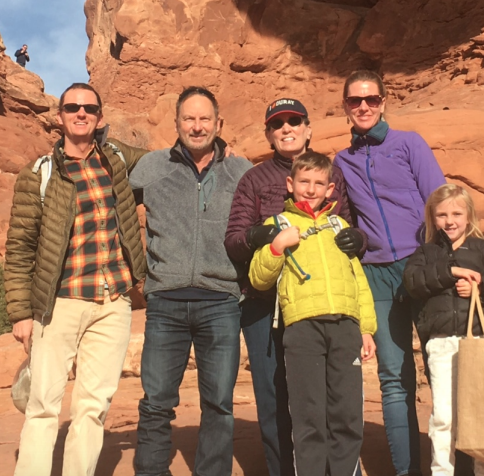
As a graduate student at UCSC, John Mason worked in theoretical particle physics with Professors Dine and Haber. He received his PhD in Spring 2008 and is currently an Associate Professor of Physics at Western Colorado State University.
"I enrolled in UCSC’s graduate program in physics to study high energy theory and that is exactly what I got to do. The faculty are some of the most well-respected researchers in their field. If you are ready to work hard and think deeply, they will take you straight to the forefront of cutting edge research. The Bay Area is one of a few major centers for research in theoretical physics like those in New Jersey, Boston and Michigan. UCSC’s theory group is closely connected with the other research groups in the Bay Area, and your training will be enhanced to a tremendous degree by making the biweekly trip to SLAC to interact with the researchers there and hear from visiting speakers from around the globe. While some students succeed in careers of purely academic research, many find a good fit in a variety of industries. After a three-year postdoctoral position at Harvard, I am now settled down teaching at a small undergraduate college in Colorado. My thesis advisors at UCSC were very supportive of my career path at every step of the way after I graduated. Other than being a top program, the faculty in the theory group at Santa Cruz are the nicest theoretical physicists in the country and Santa Cruz is one of the most beautiful places in the world. UCSC is a great place to study theoretical physics."
Jason Hancock (2005)
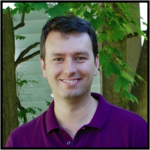 Jason Hancock is a Physics professor at the University of Connecticut. Jason earned his PhD in experimental condensed matter working with Professor Zack Schlesinger and using infrared spectroscopy to study complex materials with unconventional behavior. After UCSC, he moved to Stanford as a postdoctoral fellow to learn X-ray scattering science. He then moved to the University of Geneva in Switzerland where he blended and expanded this base of experimental techniques.
Jason Hancock is a Physics professor at the University of Connecticut. Jason earned his PhD in experimental condensed matter working with Professor Zack Schlesinger and using infrared spectroscopy to study complex materials with unconventional behavior. After UCSC, he moved to Stanford as a postdoctoral fellow to learn X-ray scattering science. He then moved to the University of Geneva in Switzerland where he blended and expanded this base of experimental techniques.
“UCSC was the setting in which I began my professional career. The golden state, and particularly the Bay area, draws and inspires people, from the most serious and professional to the wild at heart. I have absolutely no regrets that I accepted my graduate school challenge here and would recommend it to anyone. A science department so well supported near the throbbing heart of technology over the hill in Si valley provides many opportunities that may not be obvious to a student shopping for graduate schools. While I was drawn to UCSC and initially supported to carry out particle physics research, there were many opportunities and as my scientific interests developed, I found that the breadth, variability, and control provided by condensed matter physics suited well my broad interests and developing skill set. Frequent elite lectures and quality courses offered by excellent theorists from all fields peppered my time in the UCSC Physics Department. Most of all, my advisor Zack and the other professors were supportive of exploratory ideas and worked to provide a framework of support that all students need. When it was time to leave, my positioning at UCSC permitted me to consider widely options for the next steps and the faculty was available and willing to provide advice and support. Overall, my UCSC graduate physics education was invigorating, inspired, dynamic, and deep but most importantly supported. I recommend UCSC Physics as a setting for graduate school for any serious student."
